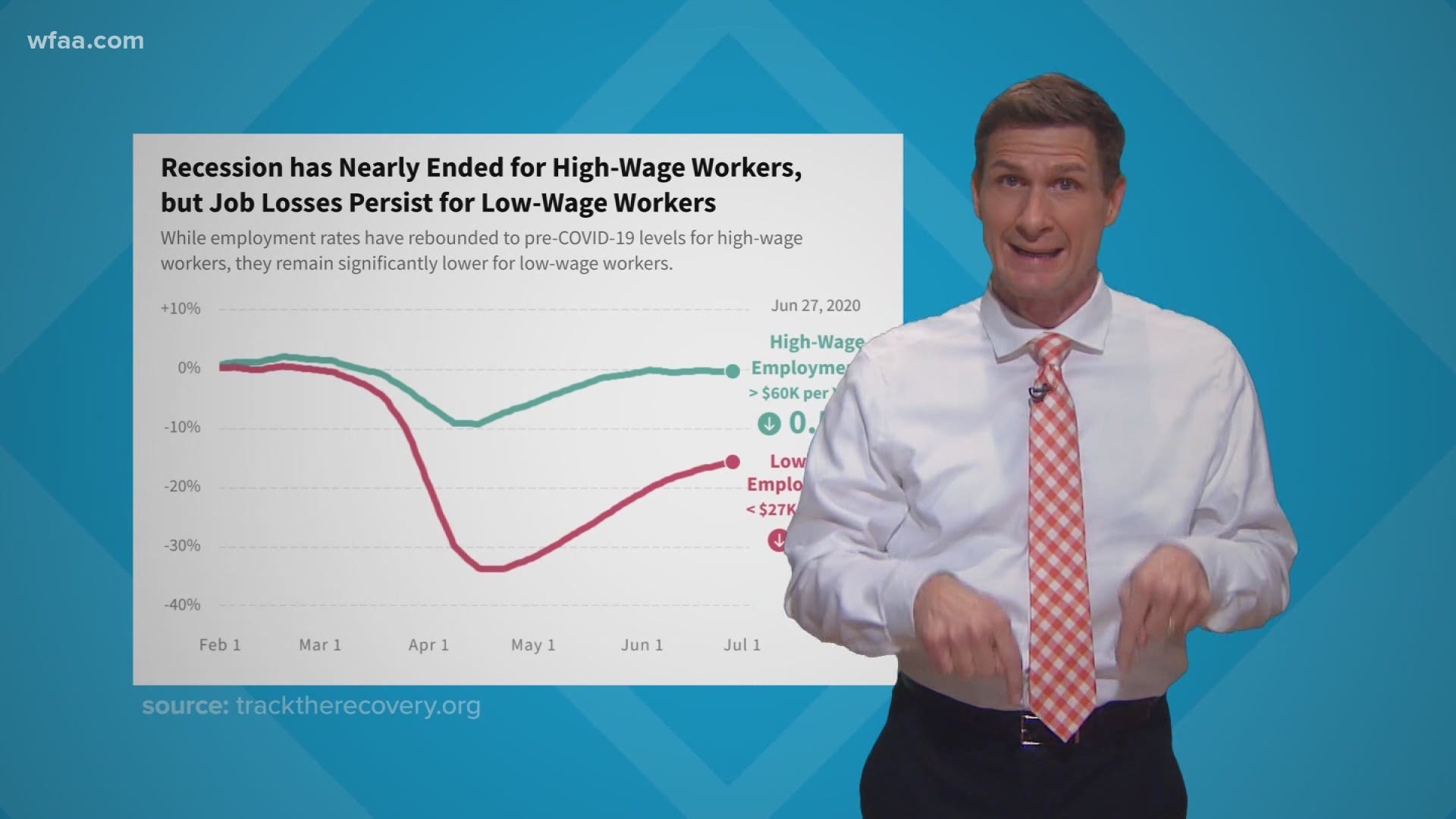DALLAS — This headline is attention-getting: Recession has Nearly Ended for High-Wage Workers, but Job Losses Persist for Low-Wage Workers.
Uneven employment rate, depending on how much you make
Researchers with Opportunity Insights, based at Harvard University, have been tracking joblessness across the country, including in North Texas. They have found that the unemployment rate in the Dallas metro is still at 13.7% for people in jobs that make less than $27,000 per year.
The team found that the unemployment rate has recovered a lot more for middle-income jobs that pay between $27,000 and $60,000 per year (a 5.1% unemployment rate) and for high wage positions that pay more than $60,000 per year (a 4.1% unemployment rate). The data only goes through the end of July, so it remains to be seen if the statistics even out as more data comes in now that the reopening has been further expanded in Texas.
RELATED: Many workers may be doing a poor job of guarding the company secrets as they work from home
Searching for jobs by education level
What if you were a middle or high-wage earner and you are still out of work? How are your prospects right now to find a job? It could be tough, if we assume that job postings asking for a lot of education pay better. The researchers looked at all available jobs here through the week ending September 11th.
They found that overall, job listings are down 31.8% from January. But when they looked at positions that require “considerable education," they found that job postings were off 42.9% from January. The news was better for the next higher level—job postings asking for “extensive education." Those listings have fallen off 28.7% from January.
Get counted- The census deadline is fast approaching, and you could cost the state big
September 30th is the deadline for you to be counted in the census. This matters a lot. Each percent of an undercount would cost Texas an estimated $300 million in federal funding each year. If you don’t fill it out, Texas loses big. The Texas Comptroller’s Office estimates each person who isn’t counted costs the state $1,161 in funding every year.
Click here to fill out the census and be counted. It takes mere minutes.

